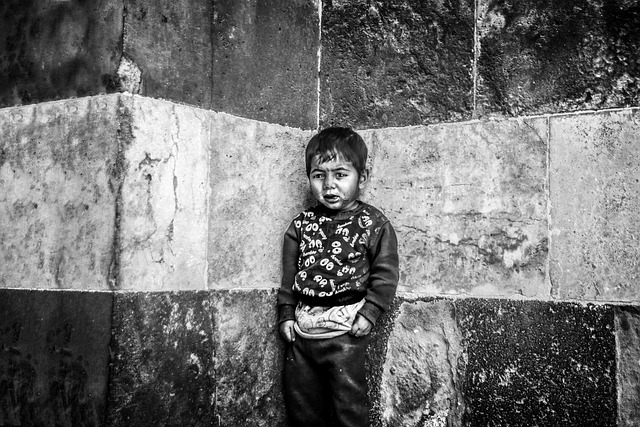Juvenile law protects children's rights and ensures fair treatment in legal proceedings related to delinquency, neglect, and abuse. Child welfare attorneys specialize in this field, advocating for minors in court and fostering a safe environment. They guide vulnerable children through complex processes, promote rehabilitation over punishment, and offer critical support in foster care and adoption. These specialists uphold the best interests of children, represent victims and accused alike, and contribute to a more compassionate child welfare system. Key services include foster care legal support, advocacy against neglect and abuse, and representation in juvenile court proceedings.
Protecting children’s interests in legal situations is paramount for their well-being and future success. This comprehensive guide explores the critical role of juvenile law in safeguarding our youngest members. We delve into the intricate legal framework that underpins child protection, highlighting the significance of a skilled child welfare attorney. Understanding your rights and representations in juvenile court is essential, especially when navigating complex issues like neglect, abuse, and delinquency. Discover how advocacy fosters secure environments for vulnerable populations through specialized foster care legal services and dedicated child rights lawyers.
- Understanding Juvenile Law: The Legal Framework for Child Protection
- The Role of a Child Welfare Attorney in Ensuring Fair Treatment
- Navigating Juvenile Court: Rights and Representations for Children
- Advocacy for Vulnerable Populations: Addressing Neglect, Abuse, and Delinquency
Understanding Juvenile Law: The Legal Framework for Child Protection

Understanding Juvenile Law: The Legal Framework for Child Protection
Juvenile law is a specialized field designed to safeguard and advocate for children’s rights, particularly within legal proceedings. It forms the critical foundation for child protection, ensuring that young individuals involved in the justice system receive fair treatment and appropriate care. This legal framework encompasses various aspects of child welfare, including juvenile delinquency, neglect, abuse, and foster care placements. The primary objective is to promote the best interests of children while navigating complex legal issues.
A juvenile lawyer or child rights lawyer plays a pivotal role in this process, acting as an advocate for minors. They guide children and their families through juvenile court proceedings, offering expert advice and ensuring their rights are upheld. These attorneys specialize in child welfare law, addressing issues like neglect, abuse, and delinquency, and they work tirelessly to protect vulnerable youth from further harm. Their services extend to fostering appropriate legal solutions, such as alternative dispute resolution or specialized foster care programs, ultimately aiming to rehabilitate and support children while holding perpetrators accountable.
The Role of a Child Welfare Attorney in Ensuring Fair Treatment

In legal situations involving children, a Child Welfare Attorney plays a pivotal role in ensuring their interests are protected and that they receive fair treatment under the law. These attorneys specialize in juvenile law, focusing on cases related to child welfare, protection, and advocacy. Their primary goal is to safeguard the rights of minors, especially those facing issues like neglect, abuse, or juvenile delinquency. A Child Welfare Attorney’s expertise extends to navigating complex legal procedures within juvenile courts, ensuring that every aspect of the case considers the child’s best interests.
They provide crucial support in foster care legal services, representing the child’s needs during placement and adoption processes. Moreover, these attorneys advocate for children affected by domestic violence, substance abuse, or other forms of child neglect, offering guidance and legal representation to help them break free from harmful situations. By leveraging their knowledge of juvenile law and child rights, Child Welfare Attorneys foster a more just and protective environment within the juvenile justice system.
Navigating Juvenile Court: Rights and Representations for Children

Navigating Juvenile Court is a complex task, especially for children who are often vulnerable and unaware of their rights. In many jurisdictions, Juvenile Court handles cases involving minors accused of delinquency, child welfare issues, neglect, or abuse. Unlike adult court, juvenile proceedings are designed to rehabilitate and protect young individuals rather than punish them. However, ensuring that a child’s best interests are served requires a dedicated advocate.
A qualified juvenile lawyer or child rights attorney plays a pivotal role in protecting children’s interests. They provide legal representation, guiding minors and their families through the court process. These specialists ensure that children’s rights are upheld, foster care placement is appropriate, and any potential abuse or neglect is addressed. Their expertise in juvenile law enables them to advocate for alternatives to incarceration, promote treatment and counseling, and ultimately contribute to a child’s long-term well-being.
Advocacy for Vulnerable Populations: Addressing Neglect, Abuse, and Delinquency

In many cases, children and adolescents are among the most vulnerable members of society, often lacking the maturity, knowledge, or voice to advocate for their rights. This is where juvenile law and child welfare attorneys step in as advocates, ensuring that the interests of minors are protected within legal systems, including juvenile courts and foster care settings. They play a crucial role in addressing critical issues such as neglect, abuse, and delinquency, which can profoundly impact a young person’s future.
Child protection lawyers specialize in navigating complex laws and procedures to safeguard children’s rights. They represent both victims of abuse or neglect and those facing juvenile delinquency charges, providing necessary legal support. These attorneys work tirelessly to ensure fair treatment, access to necessary resources, and the best possible outcomes for their young clients. By advocating for vulnerable populations, they contribute to a more just and compassionate approach to child welfare, fostering a system that prioritizes the unique needs of children in legal situations.
Protecting children’s interests in legal situations requires a multifaceted approach. By understanding the nuances of Juvenile Law and the role of dedicated Child Welfare Attorneys, we can ensure fair treatment and proper representation for young individuals in court. Navigating the complexities of juvenile court is made easier with advocates who champion for vulnerable populations, addressing issues of neglect, abuse, and delinquency. It’s through these collective efforts that we foster a system committed to the well-being and legal rights of children, from prevention to post-foster care support.
